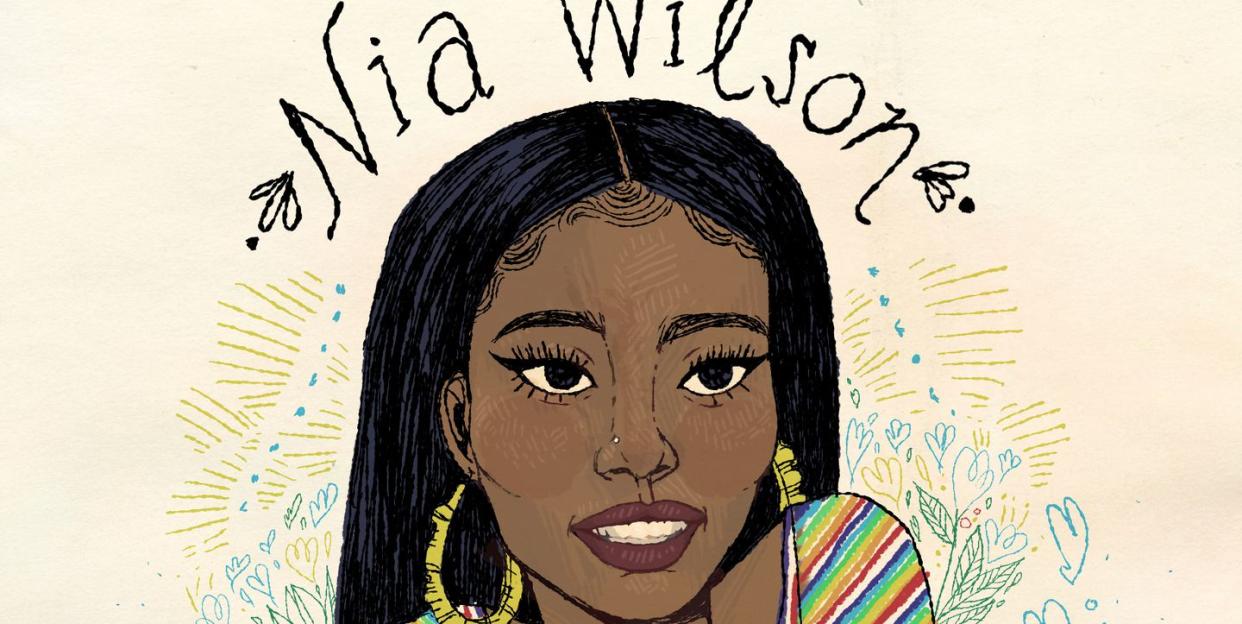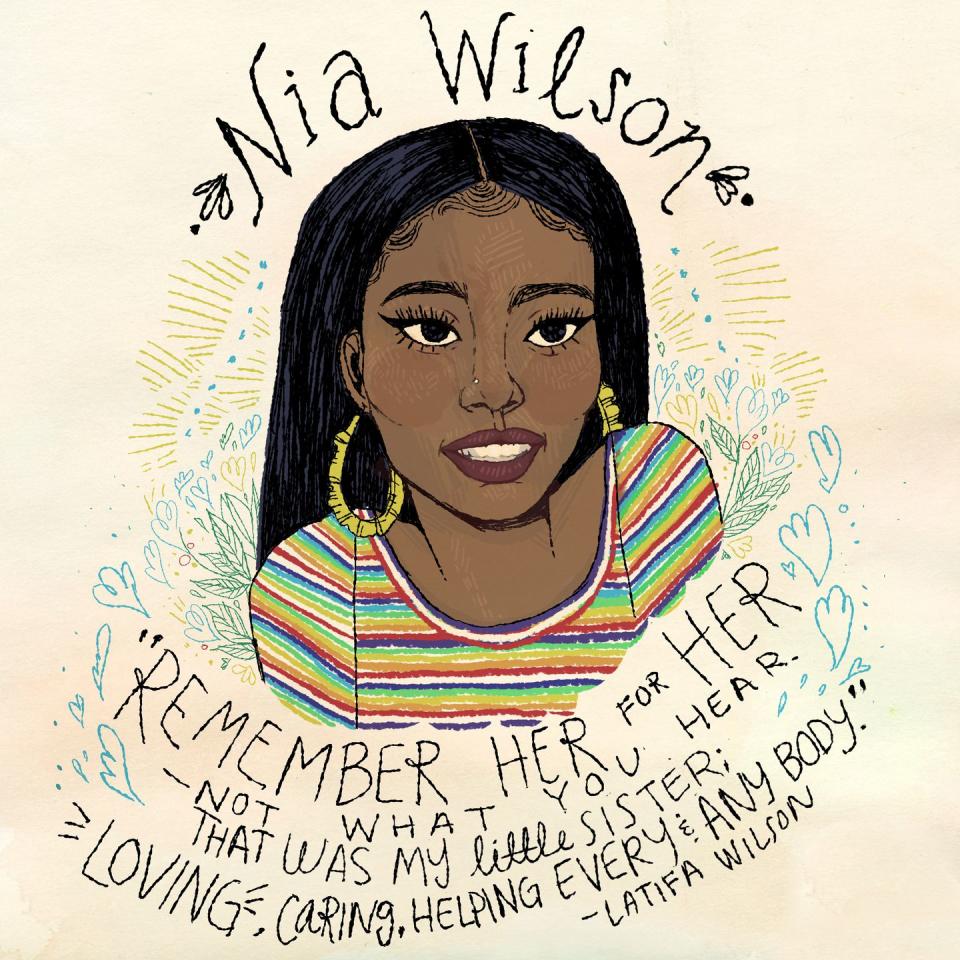California-Based Illustrator Kaylani Juanita on Why She Wanted to Honor Nia Wilson

It happened again. Another black body slain. #SayHerName hashtags began to flood social media timelines earlier this week when news broke that a 18-year-old female was killed by a senseless act of violence. Nia Wilson was her name and social media is making sure her name and her story isn't forgotten.

Nia Wilson and her sister, Lahtifa Wilson, were commuting home on the Bay Area Rapid Transit (BART) on Sunday night when they were approached by a white man on the McArthur Station platform. There, the suspect police have now identified as John Lee Cowell, got off the train with the sisters and fatally stabbed both of them, killing Nia and severely injuring Lahtifa. While recovering from her injuries, Lahtifa bravely spoke out about the attack just a day later.
"My little sister was the most sweetest person on this earth. She didn't do anything to nobody. I didn't do nothing to nobody and for this to happen is just outright crazy," Lahtifa told ABC News. Nia's passing not only spawned widespread outrage in Oakland, but on social media as well, as tributes continued to pour in each day using hashtags like #JusticeForNia or #NiaWilson. Several celebrities and artists have taken to social media to join in on the tributes, using their artwork and platform to raise awareness about senseless acts violence against black women and white privilege.
Just let Anne Hathaway tell you:
A post shared by Anne Hathaway (@annehathaway) on Jul 25, 2018 at 10:44am PDT
Kaylani Juanita, a California-based illustrator, was one of the many artists memorializing Nia Wilson, a death that hits way too close to home for the artist. You may have even seen it, as her illustration has been liked and shared thousands of times. Ahead, Kaylani opens up about why it was important for her to honor Nia Wilson.
What was going through your mind when you heard about Nia Wilson's passing? What struck you the most about the news?
I got a call from my little sister in the morning, and she was the first person to tell me about Nia Wilsons death and Latifa Wilsons injuries. All I could think to myself was, 'Why would someone do something like this?' What really struck me was the fact that it was an unwarranted attack and the setting, as well as the ethnicity and sex of the people involved-Nia being an 18-year-old Black girl and John being a 27-year-old white man. Anyone who commutes regularly on BART knows that it's far more common for passengers to be White, Asian, or male. So I automatically thought, 'She was a very visible target.' After more time passed, and I listened to Latifah talk on the news my thought process shifted to, 'That could have been me and my little sister.' We live in by the East Bay and use BART any time we go to the city.
What pushed you to create the portrait of Nia?
My profession is freelance illustrator and one of my missions as an artist is to illustrate underrepresented groups. I did an illustration of Naomi Wadler and a quote from her MARCH FOR OUR LIVES speech about Black women and girls being murdered disproportionately in America. In Naomi's speech, she spoke about honoring the women and girls who were murdered by telling their untold stories and saying their names. The illustration I did is meant to honor Nia, the quote from Latifa is to help tell Nia's story.
A post shared by Kaylani Juanita (@kaylanijuanita) on Mar 26, 2018 at 9:15pm PDT
Why is it important to raise awareness this way, as opposed to just posting a picture, news story, or hashtag?
Historically artists have always illustrated or painted people they give importance to. If an event or person is important and someone has the ability to make art about it, then they should do it. Art helps viewers think about different perspectives that can be enhanced by style.
I wanted the illustration to portray Nia as young, innocent, vibrant, and warm because that's how I saw Nia when Latifa spoke, that's how I view little sisters. It's my response to people who've warped Nia's image with misleading pictures of her, as if certain photographs justify the murder. I wanted to use Latifa's quote to remind people of Nia's humanity, and to remind people that Latifa had to defend Nia's dignity hours after Nia was murdered.
What do you hope everyone takes away from not only your portrait, but Nia's story?
I want people to be aware that we live in a society that devalues Black people and Black death; especially when it comes to Black women, Black girls, and Black LGBTQ+ people.
Racist people will try to push their values on society by portraying Nia as "bad" and Latifa was aware of that when she spoke on the news. Black people shouldn't have to constantly defend their humanity, especially in situations like this. We should say her name, Nia Wilson, and we should tell her story.
('You Might Also Like',)

